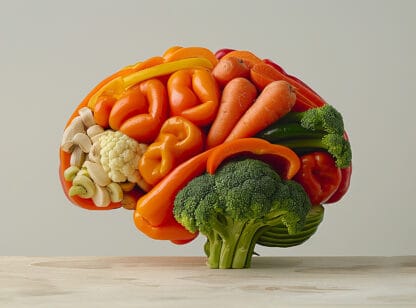It’s easy to forget how much we depend on our bones, but if you’ve ever fractured one, then you know better than to take them for granted. Building and maintaining healthy bones is extremely important. Bone is a living tissue, constantly breaking down and rebuilding. If the rate of breakdown exceeds the rate of formation, then bones weaken over time, leading to osteoporosis. This loss of bone density can result in aches and pains, decreased strength, poor posture, balance, and sometime breaks.
Minerals are incorporated into your bones during childhood, adolescence and early adulthood. Once you reach 30 years of age, you have achieved peak bone mass. If not enough bone mass is created during this time or bone loss occurs later in life, you have an increased risk of developing fragile bones that break easily.
Fortunately, many nutrition and lifestyle habits can help you build strong bones and maintain them as you age:
Perform strength training, weight-bearing exercises and osteogenic-loading exercises. Through a process known as bone remodeling, strength training stimulates the development of bone osteoblasts: cells that build bones back up. While you can achieve some of these bone benefits through aerobic exercise, especially in your lower body, resistance training and osteogenic loading are the best ways to maintain and enhance total-body bone strength.
Eat a lot of vegetables. Consuming a diet high in vegetables including leafy greens like kale, bok choy or red cabbage, along with citrus fruits, prunes, onions, broccoli, tomatoes, and green beans result in a decrease in bone turnover.
Consume adequate protein. Eating more protein may help your body absorb calcium, possibly putting a halt to bone-thinning osteoporosis and helping to build and maintain lean muscle mass.
Eat high-calcium foods throughout the day. Calcium is the main mineral found in bones and must be consumed everyday to protect bone health. Spreading your calcium intake throughout the day will optimize absorption.
Get plenty of vitamin D and vitamin K. Human intervention studies have demonstrated that vitamin K can not only increase bone mineral density in osteoporotic people, but can also actually reduce fracture rates. Further, there is evidence in human intervention studies that vitamins K and D work synergistically on bone density.
Include foods high in magnesium and zinc. Calcium isn’t the only mineral that’s important for bone health. Magnesium plays a key role in converting vitamin D into the active form that promotes calcium absorption. Zinc is a trace mineral also needed in very small amounts; it helps make up the mineral portion of your bones. Both play a key role in achieving peak bone mass during childhood and maintaining bone density during aging.
Consume foods high in omega-3 fats. Omega-3 fatty acids are well known for their anti-inflammatory effects but have also shown to promote the formation of new bone and help protect bone loss during the aging process.
The bottom line is bone health is important for all stages of life. Bone strength is typically something most people take for granted, as symptoms don’t appear until bone loss is advanced. Good news is there are many nutrition and lifestyle habits we can change to build and maintain strong bones.
Bettyann Sator is co-owner of Restore Health in Indian Wells and can be reached at (760) 408.2720. For more information visit www.restorehealth.me.
Source: 1) The Journal of Nutrition, Volume 137, Issue 11, 1 November 2007, Pages 2507S–2512S, https://doi.org/10.1093/jn/137.11.2507S











































Comments (0)